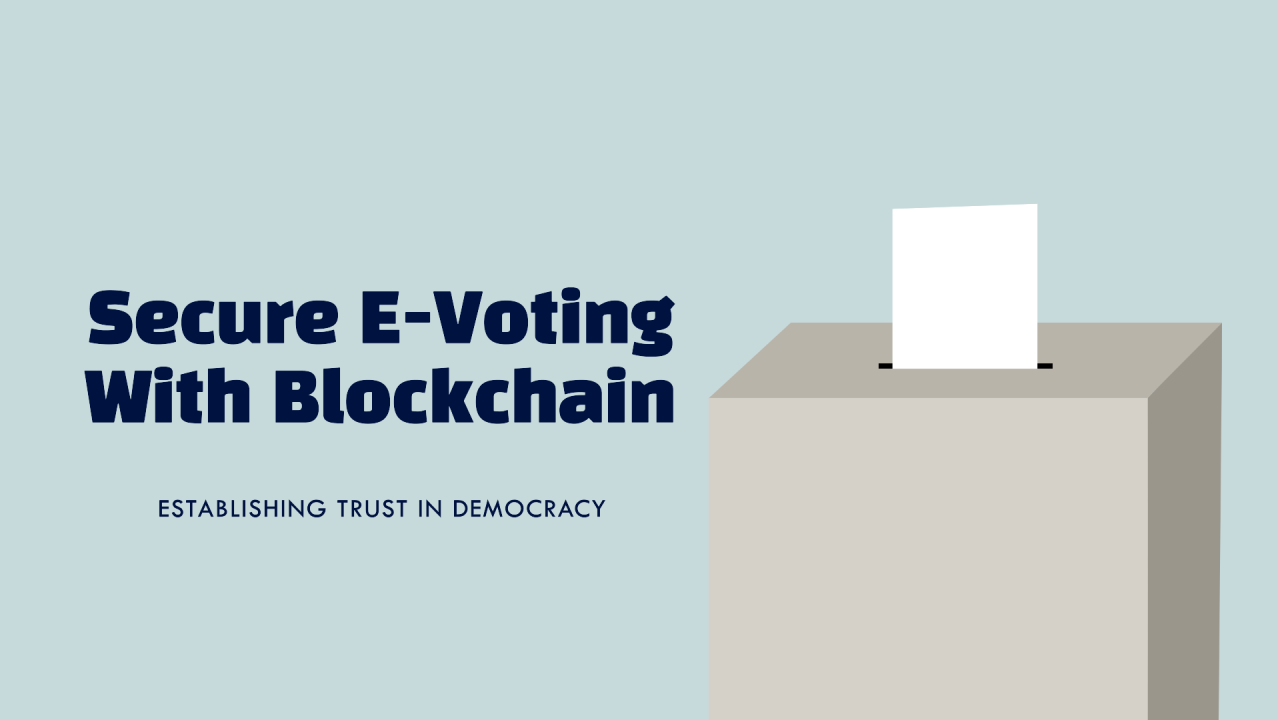How Blockchain Technology is Transforming Voting Systems for Better Democracy
As democracy evolves in the digital age, traditional voting systems are facing numerous challenges. Blockchain technology, with its promise of security, transparency, and decentralization, offers innovative solutions to enhance voting processes. This article explores how blockchain is transforming voting systems to create a more democratic society.
Techno solution

Table of Contents
- Introduction
- Understanding Blockchain Technology
- Current Voting Systems: Challenges and Limitations
- Blockchain's Role in Voting Systems
- Case Studies: Blockchain in Action
- Challenges of Implementing Blockchain Voting
- The Future of Voting with Blockchain
- Conclusion
- References
Introduction
As democracy evolves in the digital age, traditional voting systems are facing numerous challenges. Blockchain technology, with its promise of security, transparency, and decentralization, offers innovative solutions to enhance voting processes. This article explores how blockchain is transforming voting systems to create a more democratic society.
Understanding Blockchain Technology
What is Blockchain?
Blockchain is a decentralized digital ledger that records transactions across multiple computers. This technology ensures that the data is immutable and transparent, making it particularly suited for applications requiring trust and verification.
Key Features of Blockchain
- Decentralization: Eliminates the need for a central authority.
- Transparency: All transactions are visible to authorized participants.
- Immutability: Once recorded, transactions cannot be altered.
- Security: Cryptographic techniques protect data integrity.
Current Voting Systems: Challenges and Limitations
Fraud and Manipulation
Traditional voting systems are vulnerable to fraud, manipulation, and errors, which can undermine public trust in the electoral process.
Voter Apathy and Low Turnout
Many citizens feel disillusioned by the voting process, leading to low turnout rates. Barriers such as long lines, complicated registration, and lack of information exacerbate this issue.
Inaccessibility and Inefficiency
Current voting methods can be cumbersome and difficult to access, particularly for marginalized groups. This inefficiency can result in disenfranchisement.
Blockchain's Role in Voting Systems
Enhanced Security
Blockchain technology secures votes through cryptography, making it nearly impossible to alter or tamper with them after they are cast.
Transparency and Trust
With a public ledger, all transactions (votes) are recorded transparently, allowing for easy verification by stakeholders, thus enhancing trust in the system.
Accessibility and Inclusivity
Blockchain voting can simplify the voting process, allowing voters to participate remotely and increasing accessibility for individuals with disabilities.
Case Studies: Blockchain in Action
Estonia: Leading the Way
Estonia has implemented blockchain technology in its e-voting system, allowing citizens to vote securely online while maintaining transparency.
United States: Pilot Programs
Various pilot programs in U.S. states have experimented with blockchain voting, demonstrating its potential benefits and challenges.
Other Global Examples
Countries like Switzerland and Japan are exploring blockchain voting as a means to improve their electoral processes.
Challenges of Implementing Blockchain Voting
Technical Barriers
Implementing blockchain voting systems involves overcoming significant technical challenges, including scalability and integration with existing systems.
Public Perception and Trust
Building public trust in blockchain technology is crucial for its acceptance in voting systems. Misunderstandings and skepticism can hinder implementation.
Regulatory Hurdles
Regulatory frameworks must evolve to accommodate blockchain voting, which may encounter resistance from traditional electoral authorities.
The Future of Voting with Blockchain
Innovative Solutions
Blockchain technology can lead to innovative voting solutions, such as mobile voting and the use of smart contracts to automate processes.
Global Adoption Trends
As more countries explore blockchain voting, global adoption trends will likely shape the future of democratic processes.
Conclusion
Blockchain technology has the potential to revolutionize voting systems, addressing the key challenges of security, transparency, and accessibility. As more jurisdictions explore its implementation, the future of democratic participation could become more robust, inclusive, and trustworthy. By embracing blockchain, we can create a voting system that reflects the true will of the people.
References
- What is Blockchain Technology?
- How Blockchain Works
- The Vulnerabilities of Traditional Voting Systems
- Understanding Voter Apathy
- How Blockchain Enhances Voting Security
- Estonia's E-Voting Success
- Blockchain Voting Trials in the U.S.
- Trust Issues with Blockchain Voting
- Global Trends in Blockchain Voting